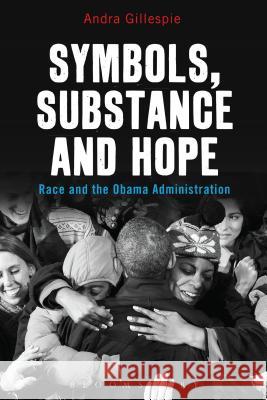Symbols, Substance and Hope: Race and the Obama Administration » książka
Symbols, Substance and Hope: Race and the Obama Administration
ISBN-13: 9781628922752 / Angielski / Miękka / 2016 / 208 str.
Symbols, Substance and Hope: Race and the Obama Administration
ISBN-13: 9781628922752 / Angielski / Miękka / 2016 / 208 str.
(netto: 93,27 VAT: 5%)
Najniższa cena z 30 dni: 95,66 zł
ok. 22 dni roboczych.
Darmowa dostawa!
In the spring and summer of 2011, a number of black elites gained national attention for their pointed critiques of President Barack Obama. Princeton University Professor Cornel West contended that President Obama had gotten elected on the promise of providing progressive leadership which would prioritize the needs of the poor. However, West berated Obama as a black mascot of Wall Street oligarchs and a black puppet of corporate plutocrats. Journalist Tavis Smiley joined West in his critique of Obama, noting that he had ignored the interests of blacks, his most loyal voting constituency, once he took the oath of office.
"Symbols, Substance and Hope" considers the context in which Obama won elections and governs. Because Obama could not get elected with just black votes, he had to cultivate a crossover appeal outside the African American community. Candidates seeking such crossover appeal employ a strategy called deracialization, in which they avoid racial appeals and advocacy of explicitly racial issues as much as possible to try to win non-black votes. Deracialized candidates are usually successful at winning office, but their success does have a price. Acclaimed author and scholar Andra Gillespie contends that one cannot understand how the Obama Administration has addressed racial issues without understanding how his choice to deracialize his campaign limited his governance choices.
This book looks at President Obama's performance on racial issues (both substantive and symbolic), and compares them to his immediate predecessors (George W. Bush and Bill Clinton). By comparing the three presidents' performances, Gillespie is able to determine the extent to which racial representation is institutionalized, and can compare the presidents' performance on racial issues across party lines. Gillespie tackles questions of inequality in a contemporary context, using statistics that are readily accessible and easily understood by both academic and lay audiences."











